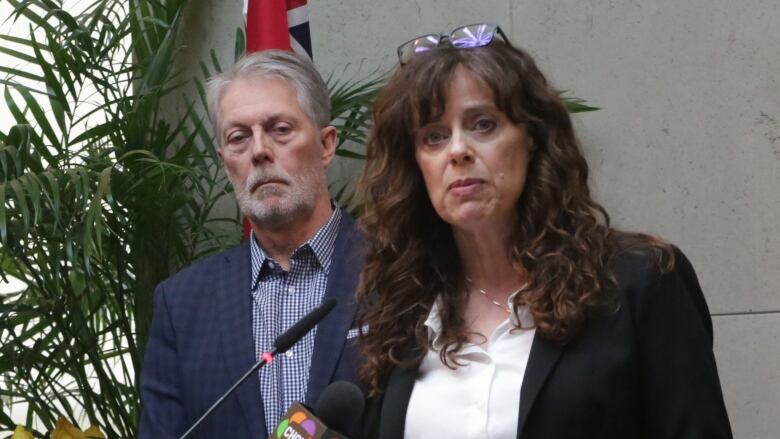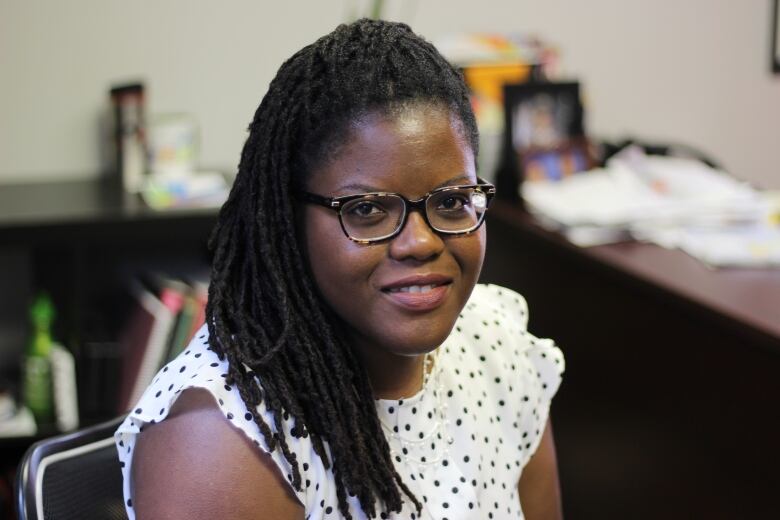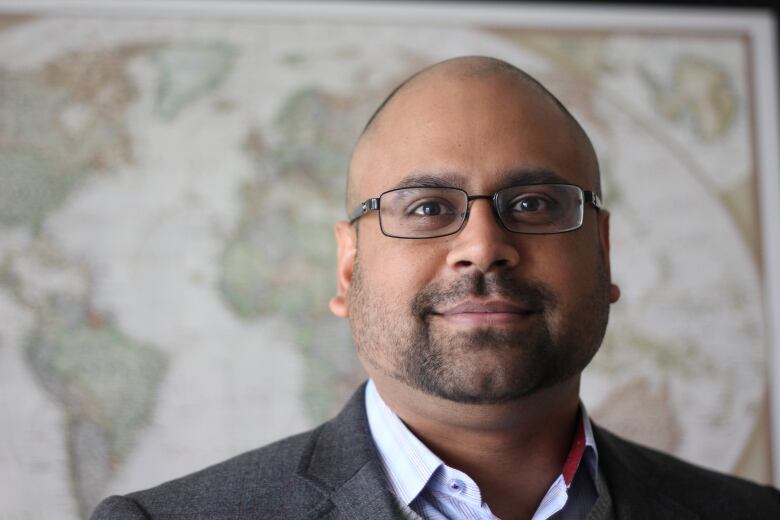BIPOC committee says it feels 'erased' after efforts to work with Hamilton Public Health
The group highlighted multiple issues about public health approach but never got credit

A group of BIPOCacademics, experts and community leaders say they feel dismissed after trying to work with Hamilton Public Health Services (HPHS) all summer to collect and release data that showed how COVID-19 has hit equity-seeking communities thehardest.
Ameil Joseph, a McMaster University associate professor who studies critical race theory, said he helped form the group. It's called the Hamilton Public Health equity data community advisory committee even though there doesn't appear to be much collaboration from Hamilton Public Health.
Back in May, the group was just an idea. HPHS decided to include race, gender and income in local COVID-19 data after experts warned in Aprilthat marginalized communities couldbe disproportionately affected by the pandemic.
Joseph and the current members of the committeesent a letter to HPHS on May 14 about how it could help collect thatdataeffectively and ethically.
"We wrote a letter to public health outlining a need for community involvement in the development of methods and analyses to provide feedback and consultation on matters related to affected communities communities affected byissues of access, inequity and thedisproportionate effects of COVID-19," he said in a phone interview.
HPHS agreed it was a good idea, Joseph says, and met with the group on a few occasions.
Some of the members include:
- Ameil Joseph.
- Ruth Cameron, a Hamilton resident with ahealth equity social inequality background.
- Dr. Bernice Downey, McMaster Indigenous Research Institute acting director.
- Kojo Damptey, Hamilton Centre For Civic Inclusion's interim executive director.
- Lyndon George,Hamilton Urban Core Community Health Centre board member.
Cameron, a fellow committee member,reiterated that public health services across the province failed to take a health equity lens immediately.
"There's nothing inherent about anyone's race or ethnicity that makes them vulnerable to COVID. It is the inequality they experience because of how other people treat them and how systems treat them based on their race and ethnicity."
Months of work met with minimal collaboration
Joseph and the group offered feedbackabout collecting data from marginalized communities and discussed key considerations includinghow the data is collected, who owns it, who accesses it, who holds the data and how that data is used and shared.
The goal of those conversations would be to avoid a situation similar to when Hamilton Police Services accessed COVID-19 data10,293 times.
Joseph said one of the primary concerns from the committee was that merely pointing out which demographic groups have higher rates of COVID-19 wouldn't be productive.
"This can actually create more issues of racism and discrimination for these groups in the community without offering them a pathway to address their own needs, to build capacity, to acquire resources, to organize and be involved in the demands for change," Joseph said.
"When you just identify people in terms of lack, they often get targeted with ideas of blame, cost, burden and there's stigma that comes along with that."
The meetings with public health were going well. Some of them were hours long. Joseph said public health acknowledged the group was a good idea.
As a result, the committeeformed and began to create a terms of reference for the group. People from child welfare services, patient advisory groups and others were also brought into help.
The committeeeven got roughly $6,000worth of seed money from McMaster Universityto do background research for public health about how to proceed withthe data collection.
After months of work all of which the committee members volunteered to do for free they sent public health the terms of reference in August.

"A month later, I was told they would be considering it and getting back to us. We still haven't heard back yet [about the terms of reference]," Joseph said.
Then,public health told the committee it would release a report soon in late September.The committee offered to provide HPHS with feedback.
The next update from public health was that the report was out but it had no mention of the committee and included minimal incorporations of its feedback (such as modifying the data'sracial categories).
"They erased our letter, the meetings, the terms of reference, the issues we raised, the community members involved, the free labour poof. Just gone, all of it," Joseph said.
"It feels like we've taken on a lot of the labour to identify some of these problems and in response, they're just doing the bare minimum."
Council deciding what to do with committee
HPHS declined two interview requests about the committee citing "scheduling conflicts." But they did respond via email.
"At this time, the option of having such a committee and to whom it provides advice continues to be discussed within council's framework for such committees," read the statement.
"In the meantime, the report has been referred by council to their existing advisory committees for review and comment."
Joseph said the response is disappointing and dismisses a chance for the city to stand out and follow the lead of groups like REDE4BlackLives.

"In Hamilton, we have a lot of great leadership, a lot of smart people here that have a lot to contribute. We could be leading, not only across municipalities but provincially and federally, on doing something different, drastically different," he said.
"I'm worried. We see these disparities, and they are the kind of things we see elsewhere, and we don't see systemic or structural changes in resourcing or commitments to address these things. So we tend to start from scratch every time, and I feel like that's one of the biggest ways that systemic racism persists ... We have to constantlyprove these inequities exist and begin from there as if everyone is oblivious, and some of that obviousness is prepared through erasure the same erasure I just described."
Joseph said one response to the group's erasure will be tohost a panel to discuss health equity.
The committee plans to partner with McMaster's Institute for Health Equity and its Indigenous Research Institute to host the event.
There's no date or set time for the event.
For more stories about the experiences of Black Canadians from anti-Black racism to success stories within the Black community check out Being Black in Canada, a CBC project Black Canadians can be proud of.You can read more stories here.













_(720p).jpg)


 OFFICIAL HD MUSIC VIDEO.jpg)
.jpg)



























































































